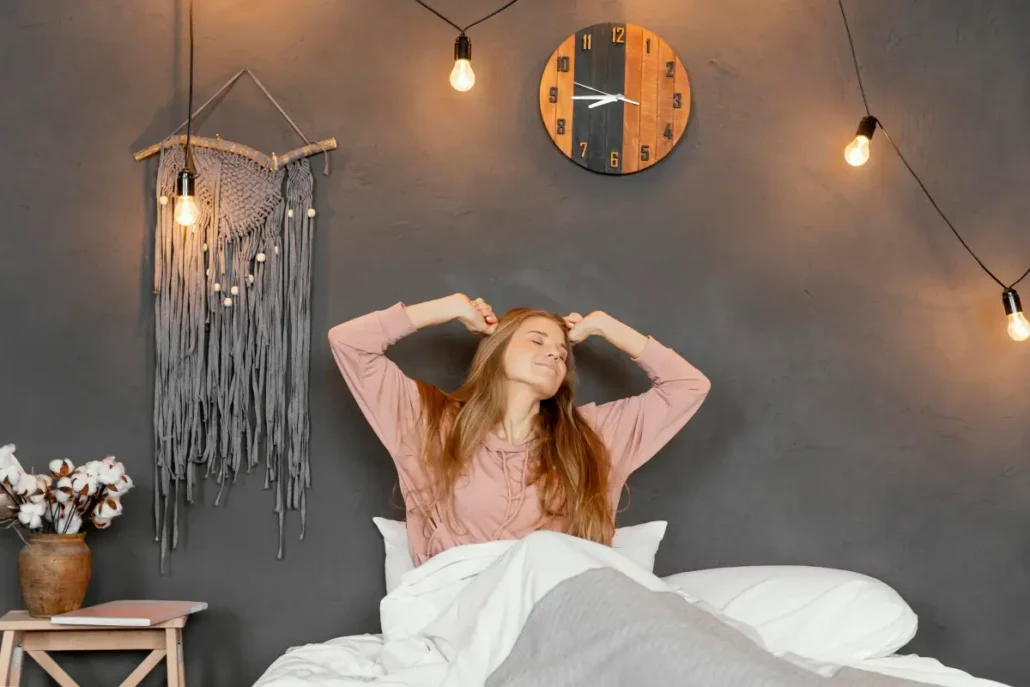It’s a cruel summer for people with allergies. After a spring filled with fragrant blooms and the sniffling and sneezing that goes with them, you may find yourself still suffering with irritated eyes, a scratchy throat and a stuffy nose.
During springtime, tree pollen is a common allergen. In summer, grass pollen and ragweed emerge to further plague allergy victims. And the hot, dry air of the season tends to carry more pollen than cool, damp days. Adding to the misery, some allergens aren’t seasonal at all. For example, dust mites and pet dander can trigger year-round sneezing.
Seasonal or not, allergies can wreak havoc on your sleep patterns.
While there’s no way to completely avoid the pollen and other irritants outside, there are ways to reduce your exposure indoors – specifically, in the bedroom. Here is some useful information that will help you take a summer vacation from allergy symptoms, so you can get a better night’s rest.
What are allergies, anyway?
Allergy problems – or to use the Latin term, allergic rhinitis – arise when people breathe air containing allergens. Allergens are typically harmless substances that cause the immune system in some people to release chemicals called histamines. In turn, these histamines create inflammation that leads to symptoms like watery eyes, congestion and sneezing.
How do allergies harm sleep?
If you have allergies, you likely know that dealing with a runny nose, sneezing and coughing can translate into having trouble falling asleep. But allergies can lead to a lot of restless tossing and turning that prevents you from staying asleep. Difficulty breathing can interrupt your sleep many times over the course of the night.
Many of us often turn to allergy medicines for relief, but you many experience negative side effects. Allergy treatments commonly contain decongestants that can keep you awake or antihistamines that can cause daytime drowsiness. Without enough hours of quality rest, you may suffer from next-day headaches, feelings of anxiety or depression, lack of concentration and even a lower libido.
What can you do?
You don’t have to let allergy problems stand in the way of a restful night. There are some simple and practical ways to set yourself up for sleep in an allergy-free bedroom.
- Take up the fight against dust mites. Every home has dust, leading to dust mites, but there’s no need to let them take over. Hit them where they like to hide – your bed and pillows, where they feast on the skin cells you shed during sleep. Wash your bedding regularly and, for extra protection, add a mattress protector or encasement.
- Shower before you slumber. Even if you need a shower to get going in the morning, bathing before you hit the sack rinses pollen from your hair and scrubs away dead skin cells. And don’t forget to wear clean pajamas. Pollen can cling to the fabric of your pajamas, inviting unwanted allergens in your bed.
- Swap out your chemical scents. Air fresheners, which may contain irritating chemicals, are a year-round trigger for allergies. Before you douse your house in the aroma of rainwater or a spring meadow, consider the sneeze factor. Choose diffusers with essential oils or natural spray fresheners. Laundry detergents, especially those with added fragrance, can often have the same effect. You may consider washing your bedding with a scent-free cleaner.
- Find the source of your snoring. Snoring can be caused by a number of conditions, including allergies. Talk to your primary care physician or a sleep specialist to determine if allergies are making you saw logs in your sleep.
- Shut the windows. Letting in fresh air on a hot summer night might be tempting, but an open window makes a clear path for pollen to invade your room. If it’s a cooler sleep atmosphere you seek, then address the issue by assessing your bedding and pillows. A different choice of fibers can help with air circulation near your face and body.
- Clear the air. Be sure to regularly change or clean the air filter on your central AC system to avoid recycling dust and other allergens throughout your home. Also, consider using a portable air purifier with a HEPA filter to improve the air quality right in your bedroom.
Allergies shouldn’t prevent you from getting the quality sleep you deserve. If you follow these tips, you’ll be able to better manage allergy problems and get a good night’s sleep.
For more help on getting the sleep of your dreams, sign up for our monthly newsletter, The Snoozzze, for the latest research, tips and much more.
Learn More on the Better Sleep Council’s YouTube Channel: Better Sleep Tips for Allergy Sufferers
#BSCSleepTip: A shower before hitting the hay will help keep your bedroom allergy-free for #bettersleep. @BetterSleepOrg


